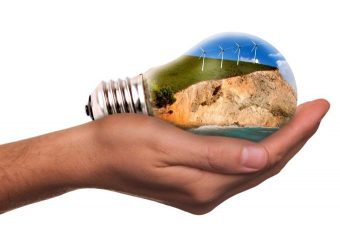
The European Union is capable of doubling the share of renewables in its energy mix to 34 per cent by 2030, delivering deep emissions cuts and economic growth across the continent in the process, according to new research by the International Renewable Energy Agency (IRENA).
IRENA analysis published today argues achieving higher shares of renewable energy is possible with existing technologies and would spur further business opportunities by triggering additional investment of around €368bn through to 2030, equivalent to an average annual contribution of 0.3 per cent to Europe’s GDP.
A doubling of renewables share of the energy mix would also result in further annual savings on energy, environmental, and health costs of between €44bn and €113bn by 2030, IRENA found, as well as a significant boost in the number of people employed in the renewables sector, which currently stands at 1.2 million.
It follows the results of the annual Global Energy Talent Index survey yesterday, which found renewables professionals are among the happiest workers in the entire energy industry, in part due to digital technologies allowing greater flexibility and remote working.
The IRENA research, which was presented in Brussels at the request of the European Commission, also estimates that doubling the share of renewables – across both heat and power – by 2030 would spur deep emissions cuts across the economy of around 15 per cent, equivalent to the total annual emissions of Italy.
It could therefore deliver the added benefit of helping to push Europe towards its goal of reducing greenhouse gases by 40 per cent between 1990 and 2030, a target some observers fear Europe is not on course to meet.
The findings come as Brussels draws up plans to revise renewables targets for 2030, with EU Commission and member states backing a renewables share of “at least” 27 per cent, while some businesses and the EU Parliament have be called for a much more ambitious 35 per cent target. IRENA’s modelling echoes previous reports which have suggested the EU could opt for a significantly more ambitious target without harming its economy.
IRENA Director-General Adnan Z. Amin said ambitious long-term targets had placed Europe at the forefront of global renewable energy development, and called for the bloc to maintain its leadership position when drawing up its new clean energy goals.
“With an ambitious and achievable new renewable energy strategy, the EU can deliver market certainty to investors and developers, strengthen economic activity, grow jobs, improve health and put the EU on a stronger decarbonisation pathway in line with its climate objectives,” he said.
Elsewhere in the report, IRENA estimates delivering a 34 per cent renewables share over the next 12 years would result in 327GW of installed wind capacity, which is an additional 97GW compared to the ‘business as usual’ scenario. Solar capacity would also surge by an extra 270GW compared to a business as usual 86GW over the same period, it adds.
In the power sector alone, that would mean the share of renewables rising to 50 per cent by 2030, compared to 29 per cent in 2015.
Renewables would also account for 42 per cent of energy in buildings, 36 per cent in industry, and 17 per cent in transport – including electric vehicles and advanced biofuels – according to the report.
Accelerating the use of heat pumps and electric vehicles towards a more ambitious 2030 renewables target would be expected to increase electricity to 27 per cent of final energy consumption over the period, up from 24 per cent under a business as usual scenario.
Miguel Arias Cañete, European Commissioner for Energy and Climate Action, welcomed IRENA’s analysis. “The report confirms our own assessments that the costs of renewables have come down significantly in the last couple of years, and that we need to consider these new realities in our ambition levels for the upcoming negotiations to finalise Europe’s renewable energy policies,” he said in a statement.
As EU lawmakers finalise plans for renewable energy targets to 2030 and beyond, they will likely be facing stiff opposition to greater ambition from Poland and other coal-reliant countries across the Baltic region. IRENA will therefore hope its analysis – presenting a vision of the significant economic, environmental and social benefits that can be unlocked from targeting a higher share of renewables in the energy mix – could help to tip the balance of the current debate in favour of Europe’s green economy.
Source: businessgreen.com


